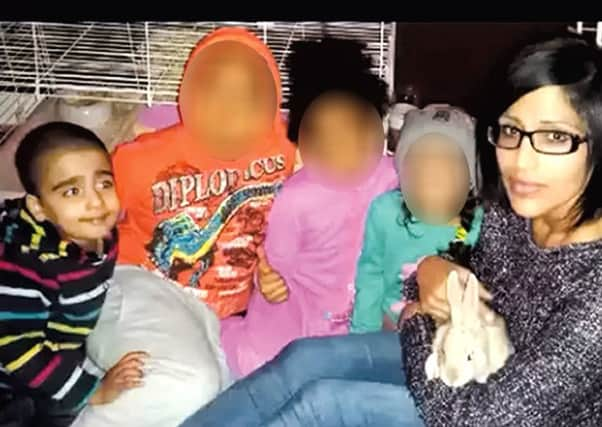Dani Garavelli: Vulnerable children need our help


Though I have spent long enough in court rooms to know it’s impossible to judge the merits of a particular case from a distance, the news that the Crown had accepted her plea of culpable homicide still provoked a jolt of disbelief. The decision not to go to trial was taken on the basis that Adekoya did not intend to kill Mikaeel and that the abuse she inflicted on him, while severe, fell short of the “wicked recklessness” required for murder. Her lawyer Brian McConnachie said she was not a monster, but a young mother with underlying problems who lost her temper and behaved in a way that was completely out of character.
Neither this, nor her history of depression, however, make the circumstances surrounding Mikaeel’s death any more palatable. Indeed, the picture which emerged last week of persistent neglect and a childhood spent in and out of foster care, will serve only to heighten public outrage over Adekoya’s behaviour and the failure of the system to protect him from it.
Advertisement
Hide AdAdvertisement
Hide AdThe story of Mikaeel’s short life is unremittingly bleak. His mother had five children – Mikaeel and his twin sister the youngest – and a reputation for leaving them alone while she went out drinking. Immediately after the twins were born they were taken into care because her relationship with their father had ended and she wanted to have them adopted. She changed her mind and they were returned, but by 2012, neighbours and her mother had expressed concerns for their welfare and they were once again put into a foster home. They returned to live with her in August 2013, by which time she had moved from Kirkcaldy to Edinburgh.
Adekoya started to assault Mikaeel when he took ill after a family trip to Nando’s on 12 January and continued to do so over the next few days, inflicting 40 injuries. She failed to seek medical attention for him and when he died, she told police he had wandered off or been abducted, sparking a massive search. Only when they noticed inconsistencies in her story did she admit she’d killed him. Later it emerged, she’d made repeated internet searches for phrases such as “I find it hard to love my son” and “I love all my children except one”.
This, like so many child abuse cases, is a story of social failings, but not of public apathy. One of the most heart-rending aspects of it was the willingness of locals in Drylaw to go out looking for the boy and the false hope they harboured of finding him alive and reuniting him with his mother. Nor did public concern only manifest itself after the event. Neighbours had seen Adekoya leave her children in the house alone overnight and passed the information on to the police.
Child protection campaigners have been pushing for new measures to encourage people to act over suspected child abuse. But neither the existence of a named person nor mandatory reporting would have saved Mikaeel. In his case and many others the problem was not that the alarm was not raised, but that it was raised and not acted upon (or acted on and then dropped). Now a serious case review has been launched by Fife social work department. Though it isn’t due to report back until December, it seems likely it will focus on what happened when Adekoya moved from one local authority area to the other. And the chances are it will point to poor communication between agencies. Why do I say this? Because virtually every serious case review into the death of a child at the hands of their carers in the last 20 years has identified the same problem. Victoria Climbie, Baby P, Kennedy McFarlane, Daniel Pelka, Kyra Ishaq, Caleb Ness: all of them failed by ineffective communication and poor decision-making. Listening to the findings of the various reports is like living through some grotesque groundhog day which ends with everyone agreeing that lessons must be learned and then not learning them. In the past, it has been suggested not learning the lessons has extended to a failure to disseminate the recommendations either internally or externally.
Getting It Right For Every Child (Girfec) – Scotland’s approach to child protection which is enshrined in the Children and Young People (Scotland) Act 2014 – represents a genuine attempt to ensure social work, health, education, police, housing and voluntary organisations streamline their systems and work together. It encourages earlier intervention by professionals to avoid crisis situations later. It sounds like the way forward. And yet.
I don’t want to be negative. I would like nothing more than to believe that Mikaeel Kular will be the last child in Scotland to die at the hands of their carer. I hope Girfec is the answer. But whether those involved in child protection communicate effectively depends as much on whether they are coping with their work as on a set of guidelines. Where people are buckling under the weight of a heavy caseload, sickness and transition rates are high and best practice tends to go by the wayside. Unless more emphasis is placed on resources to free up social workers to do their job properly, I fear it will be difficult to break the loop and write a better future for the country’s most vulnerable children. «
Twitter: @DaniGaravelli1